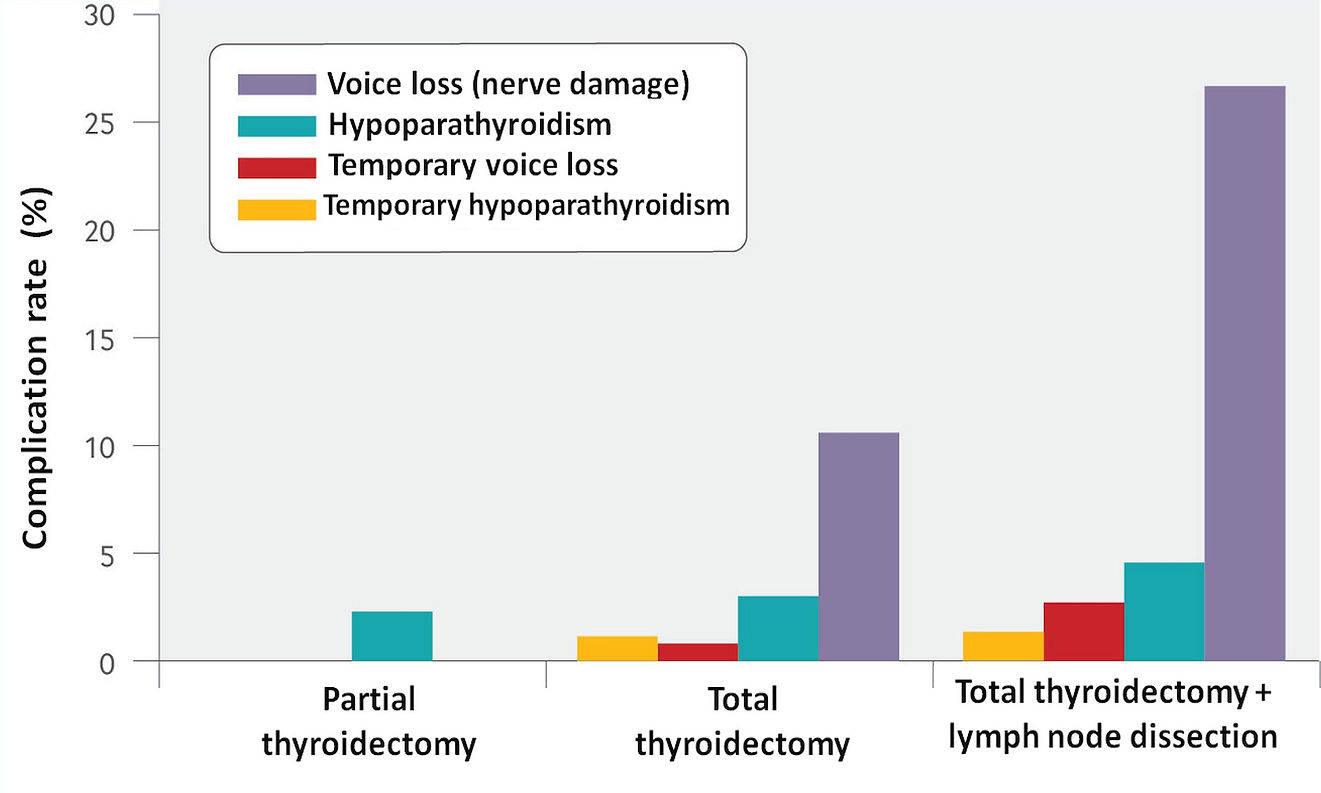Ablation Treatments
More than 90% of thyroid nodules are benign (not cancer). If they are small, not growing and do not cause any symptoms, no treatment is necessary and follow-up with serial ultrasound examinations is sufficient. However, if the nodules are large, rapidly growing and causing complaints such as hoarseness, shortness of breath, swallowing difficulty and unpleasant cosmesis, treatment is recommended.
thyroid percutaneous ablation, thyroid laser ablation, thyroid alcohol ablation
If the nodule is proved cancer with biopsy, the therapy is relatively straightforward; the thyroid is surgically removed and RAI is administered complementarily. But in benign nodules, there is a lot of controversy on the type of the treatment. In general, medical treatment (levothyroxine pills) or surgery (thyroidectomy) are suggested to the patients. However, medical treatment generally does not stop the growth of the nodules and surgery is accepted to be too aggressive because of some risks including voice loss, hipoparathyroidism and an unpleasant neck scar. For these reasons, minimally invasive alternatives such as percutaneous ablation are becoming increasingly popular.
Possible complications of surgical operations in the thyroid

What is percutaneous ablation?
Percutaneous ablation is destruction of a tumor or diseased tissue nonsurgically with the needles inserted through the skin. During ablation, the needles are placed into the target under imaging (ultrasound, CT) guidance. Percutaneous ablation can be done chemically (alcohol), thermally (laser, radiofrequency, microwave or cryoablation) or by using electricity (Nanoknife/IRE).
Percutaneous ablation is one of the most commonly utilized therapy in benign and malignant tumors in our body. It has been widely used in the liver, lung, kidney and prostate, and nowadays, it is also quite popular in pancreas, breast, bone, soft tissue and thyroid tumors.
Is percutaneous ablation used in other organs?
Percutaneous ablation can be used for both benign and malignant (cancer) thyroid nodules. Although surgery and RAI are standart therapies in thyroid cancers, small papillary cancers can also be treated with percutaneous ablation techniques such as laser, radiofrequency or microwave, as long as the tumor is within the thyroid capsule and there is no lymph node metastasis. The distant metastases of thyroid cancers in organs such as liver, lungs and bones, can also be treated with percutaneous ablation in selected patients.
Percutaneous ablation has been extensively used in the treatment of benign thyroid nodules in the last decade. Numerous studies demonstrated the safety and effectiveness of this therapy in the thyroid. Percutaneous ablation can be done by using alcohol, laser, radiofrequency and microwave. For more information on these methods, please click on the relevant link below.
Contact Us
You can get information on our treatments via phone and e-mail as well as by filling and sending the consultation form below. Please send the reports of your thyroid ultrasound, hormones, scintigraphy and biopsy (if available) via e mail (thyroidgoiter@gmail.com) or whats up ( +90-850-255 24 23). Remember to write clearly your e mail address and phone number so that we can return to you as soon as possible.
Please add the reports of your thyroid ultrasound, hormones, scintigraphy and biopsy (if available)